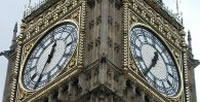Court judgment highlights issue of imprecise wording when leaving a charitable legacy
A recent High Court judgment has emphasised the issues that can arise from imprecise wording around charitable bequests in Wills.
The High Court recently gave judgment in the case of Knipe v The British Racing Drivers’ Motor Sport Charity and Ors [2020] EWHC 3295 (Ch), a summary judgment application concerning the Will of a deceased racing driver, Mr Barrie Williams, who had sought to make several charitable bequests but the names of the organisations had not been correctly recorded.
Williams died on 8 September 2018. He was survived by his fiancé and long term partner Kathryn Marshall, and his 105 year old mother. His Will enabled Ms Marshall to live in his house for the rest of her life, left his mother a share in another property that he part owned and made a number of pecuniary legacies. The residue of William’s estate was to be divided as follows:
Advertisement
- 50% to the British Racing Drivers Club Benevolent Fund
- 30% to the British Racing Drivers Club absolutely (requesting that the monies be used to fund a Barrie Williams scholarship for the benefit of young racing drivers)
- 10% to the Royal Society for the Prevention of Cruelty to Animals
- 10% to the Cancer Research Fund
Ms Marshall had made a claim under the Inheritance (Provision for Family and Dependants) Act 1975, which could not progress until clarity had been obtained as to the identity of the “British Racing Drivers Club Benevolent Fund” and “the Cancer Research Fund”. The original Will file was not available (believed to have been destroyed) and consequently there was no evidence as to his original instructions.
In reaching a determination Mr Justice Matthews cited first Section 21 of the Administration of Justice Act 1982 as follows:
“(1) This section applies to a will—
(a) in so far as any part of it is meaningless;
(b) in so far as the language used in any part of it is ambiguous on the face of it;
(c) in so far as evidence, other than evidence of the testator’s intention, shows that the language used in any part of it is ambiguous in the light of surrounding circumstances.
(2) In so far as this section applies to a will extrinsic evidence, including evidence of the testator’s intention, may be admitted to assist in its interpretation.”
And then the words of Lord Neuberger in Marley v Rawlings [2015] AC 129:
19. When interpreting a contract, the court is concerned to find the intention of the party or parties, and it does this by identifying the meaning of the relevant words, (a) in the light of (i) the natural and ordinary meaning of those words, (ii) the overall purpose of the document, (iii) any other provisions of the document, (iv) the facts known or assumed by the parties at the time that the document was executed, and (v) common sense, but (b) ignoring subjective evidence of any party’s intentions. [ … ]
20. When it comes to interpreting wills, it seems to me that the approach should be the same. Whether the document in question is a commercial contract or a will, the aim is to identify the intention of the party or parties to the document by interpreting the words used in their documentary, factual and commercial context. [ … ]”
Investigations showed that the British Racing Drivers’ Club Benevolent Fund did not exist. The British Racing Drivers Club (“the Club”) was a defendant to the Claim. The Club was not a charity but it did administer a benevolent fund called the British Racing Drivers’ Club Motor Sport Charity. It went unchallenged that Williams intended to benefit the latter.
Mr Justice Matthews noted that the wording “the British Racing Drivers Club Benevolent Fund” linked the identity of the intended beneficiary to the Club and the Motor Sport Charity was the only benevolent fund administered by the Club and concluded that in this instance it was “a the simple case of construing the words in the will in the context in which the deceased used them” in order to ascertain the proper construction of the Will.
In regards to the intended recipient of the bequest to “The Cancer Research Fund”, there was no registered charity known by that name. Mr Justice Matthews considered the phrase to be ambiguous necessitating the application of section 21 of the Administration of Justice Act 1982. He concluded that the wording did not refer to a particular institution, but rather it referred to the general charitable purpose of cancer research and therefore it was for the executor of the estate to apply that part of the residue to that charitable purpose as he saw fit.
Commenting on the case, Kingsley Napley lawyer Katherine Pymont said:
“It is not uncommon for there to be drafting errors when making charitable bequests and even if a named charity exists at the date of executing a Will it may be that by the time of the testator’s death the position has changed. For this reason it is recommended that not only do charities encourage supporters to instruct qualified professionals to prepare their wills to avoid some of the more obvious drafting pit falls, but also that there is a fall back to enable executors to select a charity with similar purposes to that identified by the deceased in the event that the named charity no longer exists or is unidentifiable.”




